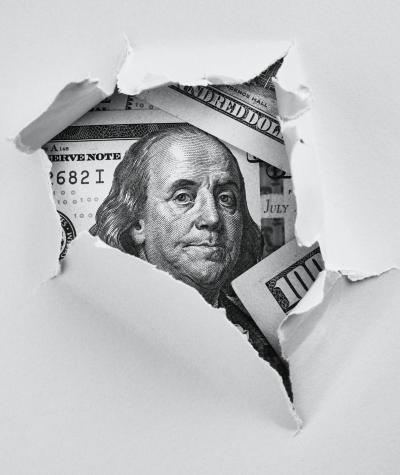Every election cycle, voters see, hear, and scroll past countless political ads that support or attack candidates vying for public office. Indeed, candidates generally spend a major share of their campaign funds on such ads.
But in recent years, political ads have increasingly been financed by outside groups like super PACs, which spend hundreds of millions of dollars each election to promote and attack candidates.
These outside groups often push messages that are misleading or inflammatory, and their financial backers often seek to advance a particular policy or issue, or to elect a candidate pledging to favor their interests. To meaningfully evaluate these kinds of ads, voters need to know who is actually paying for them by funding the super PAC.
Campaign finance laws help provide some insight here. Super PACs, for example, must provide a disclaimer on their election ads stating that they paid for the ad, and they are also required to file regular reports with the Federal Election Commission (FEC) publicly disclosing their contributors.
Let’s say you saw an ad that attacked a candidate for supporting environmental protection laws “that increased job losses in our district,” and the disclaimer said the ad was “Paid for by Jobs for All PAC.” If you went to FEC.gov, looked up who contributed to that super PAC, and learned that its funding came from a major oil company, you might disregard the ad’s claims based on that corporation’s financial motives.
But super PAC operatives that want to keep their funding sources secret are increasingly using loopholes to obscure the identities of the special interests funding their ads, leaving voters in the dark. This secret spending (sometimes called “dark money”) harms voters and our democracy because it undermines voters’ ability to meaningfully participate in the electoral process.
One particularly brazen example involves the “pop-up” super PAC, which, as the name suggests, pops up and registers right before an election, immediately receives a massive influx of contributions and spends nearly all its money on political ads in the last few days before the election.
By “popping up” right before the election, the super PAC evades pre-election reporting rules and avoids having to disclose its contributors until its next reporting deadline, which conveniently falls after the election. As a result, while voters see the super PAC’s ads before they vote, they can’t find out who actually paid for those ads until after the election is over — and are thus deprived of the right to use that information when deciding how to vote.
In many instances, these pop-up super PACs have names that suggest a local connection, but their post-election reporting often reveals that their money actually came from national special interest groups and wealthy individuals with no connection whatsoever to the district or state being targeted.
For example, the White Mountain PAC — whose name alludes to New Hampshire’s scenic “White Mountains” range — registered on August 30, 2022, and immediately spent over $4.6 million on political ads supporting candidate Chuck Morse in the GOP’s U.S. Senate primary in New Hampshire, while spending another $14,000 opposing Donald Bolduc, another primary candidate.
When New Hampshire voters cast their ballots in that primary election on September 13, 2022, they had no idea who had given money to White Mountain PAC, or in other words, who was responsible for over $4.6 million spent to influence their vote in the final days before the election.
When the super PAC finally had to file a public disclosure report on October 15, 2022, long after the primary was over, it reported contributions not from local individuals or groups, but from the Senate Leadership Fund, a major national super PAC controlled by Sen. Mitch McConnell, which gave White Mountain PAC $4.8 million, and Wyoming-based GOP megadonor Timothy Mellon, who gave the super PAC another $2 million.
New Hampshire voters were thus denied their right to know who was truly responsible for millions of dollars in spending to influence their vote.
In the 2020 election for U.S. Senate in North Carolina, pop up super PACs were essentially used to wage a secret proxy war between national political operatives: A super PAC called “Carolina Blue” formed weeks before the Democratic primary election and quickly spent over $4.5 million backing candidate Cal Cunningham, while a different super PAC called “Faith and Power PAC” spent $2.6 million attacking Cunningham and another $250,000 supporting his primary opponent, Erica Smith.
North Carolina voters cast their ballots with no idea where any of this spending originated.
Only weeks after the election did the super PACs disclose their contributors, showing that virtually all of Carolina Blue’s funding came from Senate Majority PAC, a major Democratic group linked to Sen. Chuck Schumer, and virtually all of Faith and Power PAC’s funding came from the Senate Leadership Fund — the McConnell-run super PAC (ostensibly spending to back the Democratic primary candidate that national Republicans wanted their party’s candidate to face in the general election).
Pop-up super PACs thus cover up who is actually spending money to influence voters, allowing special interests, including corporations, wealthy individuals, and national political operatives to secretly rig the electoral process. This harms voters and helps create a political system that is responsive primarily to those spending big money, not the everyday American voter.
Voters need real transparency in elections to meaningfully participate in the democratic process and elect officials that will advance their interests, not special interest priorities.

